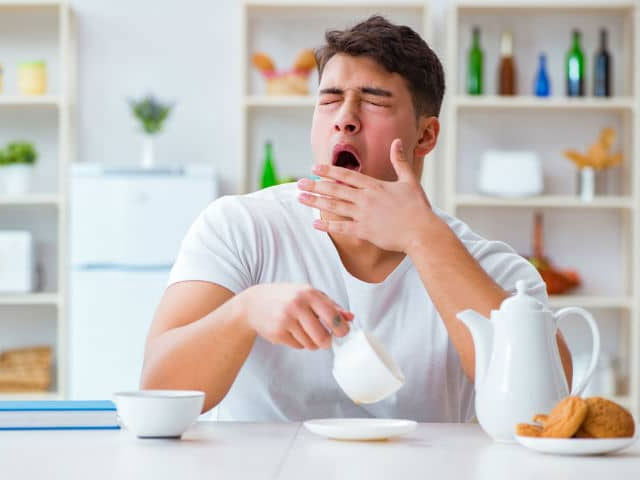
Why Do We Feel Sleepy After Eating
The desire to sleep after eating, scientifically known as Postprandial Somnolence, is something we all experience from time to time. While your organs are working together to digest what you eat, it is of course very pleasant to take a nap. However, if you experience this condition on a regular basis, there is either a health problem or your dietary choices are wrong.
What causes postprandial somnolence?
When our stomach is full, our body automatically pumps more blood into the digestive system. This can lead to less oxygen getting to the muscles and brain, which can cause mild fatigue. The fuller your stomach and the heavier your food, the stronger this condition will be.
How to avoid feeling sleepy after a meal?
If your desire to sleep after a meal is not caused by any disease, you can ease post-meal fatigue with these simple suggestions:
- Eat less
- Get enough electrolytes through your diet with fresh fruits
- Reduce carbohydrates and fat
- Prefer vegetables and lean proteins
- Avoid alcohol
- Take short, slow walks after meals
- Ventilate your environment
Is my post-meal fatigue due to some disease?
When you frequently experience excessive desire to sleep after meals, sooner or later you will face problems in the long run. Focusing on your responsibilities at work or at school will be harder, and you won’t be as energetic as your company in social life. Frequent post-meal fatigue means that you have an underlying health issue, which is probably one of these:
Hypoglycemia: For the body to function normally, the glucose in blood must be within a certain limit. When it falls below this healthy range, the problem is called hypoglycemia. Hypoglycemia occurs when blood sugar rises rapidly and then drops suddenly, especially after consuming high-carbohydrate foods (white bread, rice, sweets). This sudden drop quickly depletes the body’s energy levels and causes fatigue and the desire to sleep.
Diabetes: People with diabetes may experience sudden fluctuations in blood sugar after a meal. With a simple blood test, you can easily find out if you have diabetes and how healthy your blood sugar levels are.
Sleep apnea: Sleep apnea is a very common problem in which your sleep pattern is ruined by blocked airway multiples times during sleep. This causes a significant decrease in sleep quality and a general feeling of tiredness. People who do not get enough sleep at night feel more tired and sleepy during the day and especially after meals. It may be difficult to notice the problems sleep apnea causes during the night, but if you feel tired in the morning, even on days when you spent enough time asleep, it is probably due to sleep apnea.
Digestive problems: Sleepiness after meals is a common symptom when you have problems in your digestive system. These problems are often accompanied by bloating, pain and nausea as well as sleepiness.
Anemia: During digestion, your stomach will need lots and lots of good quality blood circulated around for a few hours. This is not much possible when you suffer from anemia, because it means you either don’t have enough healthy red cells in your blood or you cannot benefit from the available ones. This disease is very common worldwide, especially in women and young children. People with this condition often experience fatigue and have a strong desire to sleep after meals.
Hormonal imbalances: Hormones play key roles in all functions of the body, including digestion. If your hormone levels are out of balance, this can make its presence felt more strongly when your stomach is full. Among these, hypothyroidism (underactive thyroid gland) prevents the metabolism from working fast enough, causing significant postprandial sleepiness.


